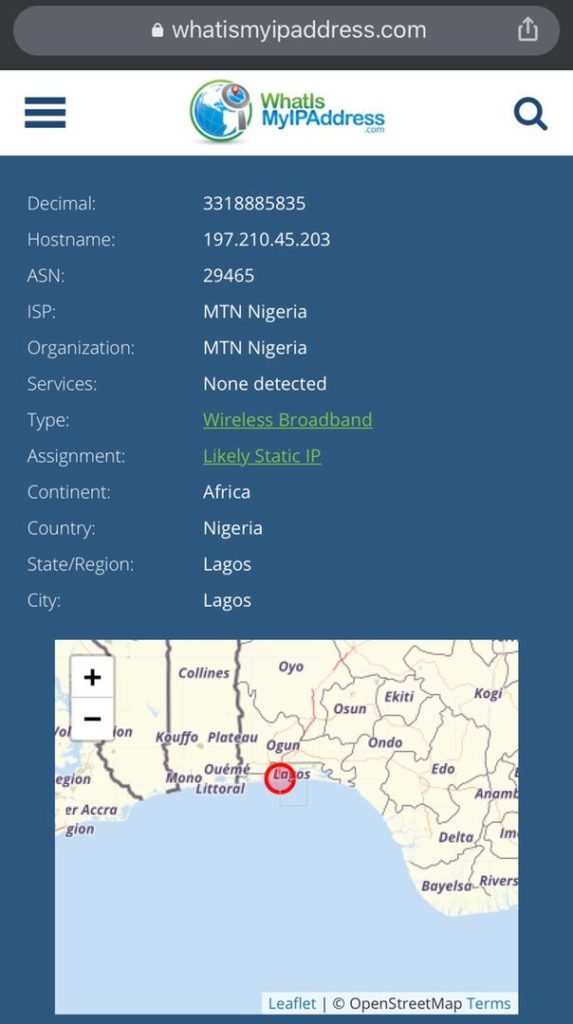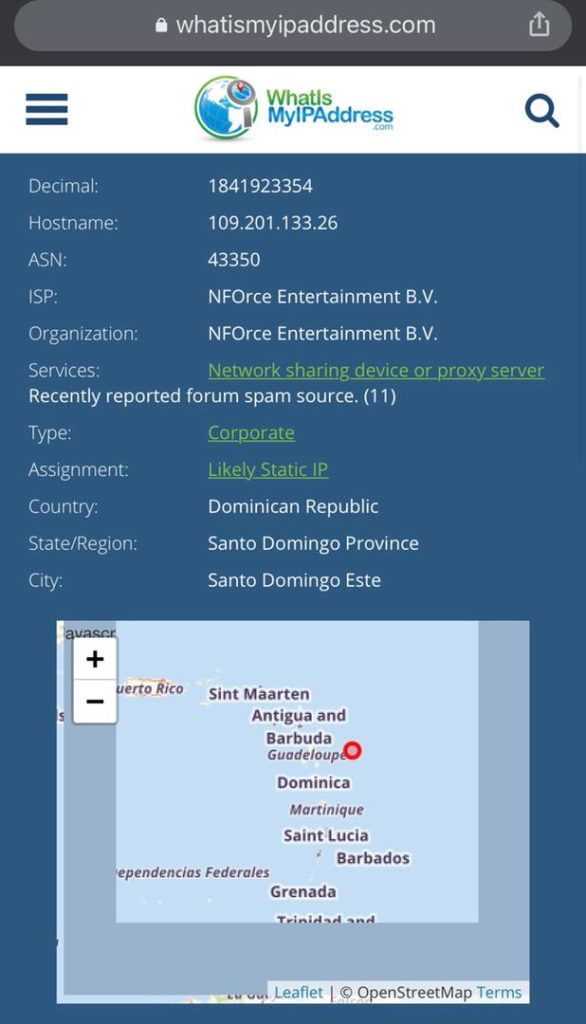Virtual Private Networks (VPN) are all the rage right now in Nigeria since the government banned Twitter. The rise in popularity of VPNs has brought up questions about how exactly they work.
So let’s talk about how VPNs work.
On the internet, different computers send and receive information between Internet Protocol (IP) addresses. Think of it as sending items between two or more physical addresses. When we surf the internet with our IP address, different websites will know specific information about us such as our location, device type, browser and operating system.
What does a VPN do?
With VPNs, our IP addresses change and online activities are hidden.

Before turning on my VPN, my device was in Lagos, Nigeria 
After turning on my VPN, my device is in Santo Domingo, Dominican Republic
The images above show how my location changed from Nigeria to Dominican Republic after turning on my VPN.
Think about it this way: The internet is like a highway that connects different cities across different countries. These highways are mostly public roads that many people use. If you drive on a public road anyone can follow you and track where you go, how long you spend at your destination, and when you return. They might even be able to spy inside your car and learn more about you.
With a VPN, you have your own private tunnel/road. A tunnel where no one can see what you’re doing or where you’re going.
What can a VPN do for you?
No monitoring: As we mentioned earlier, your internet service provider (ISP) can see your internet traffic and probably log your browsing history. With a VPN, information about your activities online are scrambled in an encrypted tunnel so that external parties, your ISP included, can’t read it.
Access any site: Every now and then, websites or services you want to use may be inaccessible from your location. VPN enables access to these sites or services from anywhere. If a website isn’t available to devices located in Nigeria, VPNs can change your device location to a different country which has access to this website.
Protection: Free public Wi-Fi might make you forget all your life’s problems but it can also be the beginning of a new set of problems. Public Wi-Fi can easily be accessed by hackers on the same network, who can read your personal data. A VPN encrypts your entire internet connection to protect all your communications, even over unsecured networks.
What is the difference between a VPN app, a VPN plugin, and a VPN browser?
Curious about which you should use? VPN browsers or browser plugins only protect your web browser traffic. Note, however, that the rest of the network traffic from your device is still exposed to internet service providers and potential hackers. A VPN app encrypts and protects all network traffic from your device.
Is it safe to use a VPN for online banking?
Yes– but ensure you are using a reputable VPN service. VPNs help protect your privacy while you perform online banking transactions. But remember, a VPN is a tunnel that encrypts your data. It cannot protect you from viruses or guarantee that you won’t be hacked. Remember to create a strong password and adhere to online safety measures.
What else should I know about VPNs?
VPNs aren’t without flaws. They have their fair share of practical drawbacks. Internet speed can be slower because VPNs have to reroute and encrypt your data while sending and receiving information between your device and a website.
Also, some sites and services look at VPN traffic as suspicious and won’t let you connect. It becomes suspicious when a device is in different locations within a short time — in New York, Lagos and Tokyo within an hour. This could become a real problem, especially when it’s your bank that blocks you.



















